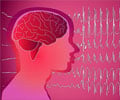Discover the risks of seizures while driving, the delayed diagnosis of epilepsy, and the importance of early identification for road safety.
- Individuals with focal epilepsy had seizures while driving before being diagnosed, posing substantial risks to themselves and others on the road
- People who work have a higher risk of experiencing seizures while driving before an epilepsy diagnosis compared to non-workers
- Non-motor seizures, characterized by a pause in movement and staring, are more likely to occur while driving before diagnosis than motor seizures
Impact of Seizures While Driving Prior to Diagnosis in People With Focal Epilepsy: Motor Vehicle Accidents and Time to Diagnosis
Go to source). More than half of all epilepsy cases are caused by focal epilepsy. This type of epilepsy causes repeated seizures that affect one-half of the brain.
Risks of Seizures While Driving
"Seizures while driving pose substantial risks for those experiencing them and for others on the road," said study author Jacob Pellinen, M.D., of the University of Colorado in Aurora and a member of the American Academy of Neurology."While medication may make it possible for some people with epilepsy to safely drive, they must first be diagnosed. Our study sought to define how often seizures happen while driving before a diagnosis and then how long it takes before a person is diagnosed. Our results can then help inform how to diagnose people sooner, to lower the number of prediagnosis seizures on the road."
Researchers identified 447 participants with focal epilepsy for the study. When they suffered their first seizure, participants were on average 29 years old.
Researchers examined individuals' medical records before they were diagnosed with epilepsy. They discovered that 23 persons, or 5% of participants, had one or more seizures while driving, for a total of 32 seizures before diagnosis.
Before diagnosis, seven people, or 30%, had more than one seizure while driving. Six persons, or 26%, experienced their first seizure while driving.
These seizures while driving resulted in 19 car accidents and 11 hospitalizations for injuries ranging from a tongue bite and a dislocated thumb to near drowning.
Seizures While Driving: Delayed Diagnosis and Occupational Risk Factors
Researchers discovered that the average period between having a first seizure and having a seizure while driving was 304 days. The average time between having a seizure while driving and being diagnosed with epilepsy was 64 days.People who worked had a four times higher risk of having a seizure while driving before diagnosis than those who did not.
Non-Motor Seizures and Driving: Higher Risk Before Diagnosis
Non-motor seizures, in which movement stops and a person may simply stare, were nearly five times more likely to have a seizure while driving before diagnosis than motor seizures, which can include sustained jerking movements or muscles becoming weak or alternately becoming rigid."Considering the United States has a population of just over 200 million people between ages 16 and 64, and considering the annual incidence of epilepsy, there are roughly 126,180 driving-age people in the country diagnosed with epilepsy each year," said Pellinen. "From our study, we estimate nearly 6.500 people per year may experience prediagnosis seizures while driving in the United States alone, leading to nearly 4,000 possible motor vehicle accidents and over 2,200 hospitalizations. Much of this may be preventable by earlier diagnosis."
One weakness of the study was that some seizure history was self-reported by individuals, and they may not have remembered all aspects correctly. Pellinen speculated that this may have resulted in an underreporting of the number of seizures while driving. Furthermore, the study was tiny and only looked at one form of epilepsy. Larger-scale research is required in the future.
Reference:
- Impact of Seizures While Driving Prior to Diagnosis in People With Focal Epilepsy: Motor Vehicle Accidents and Time to Diagnosis - (https://pubmed.ncbi.nlm.nih.gov/37286361/)
















